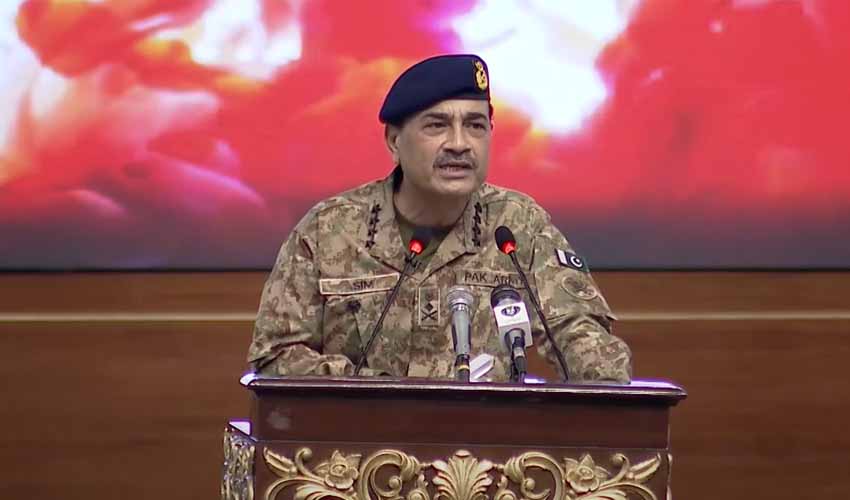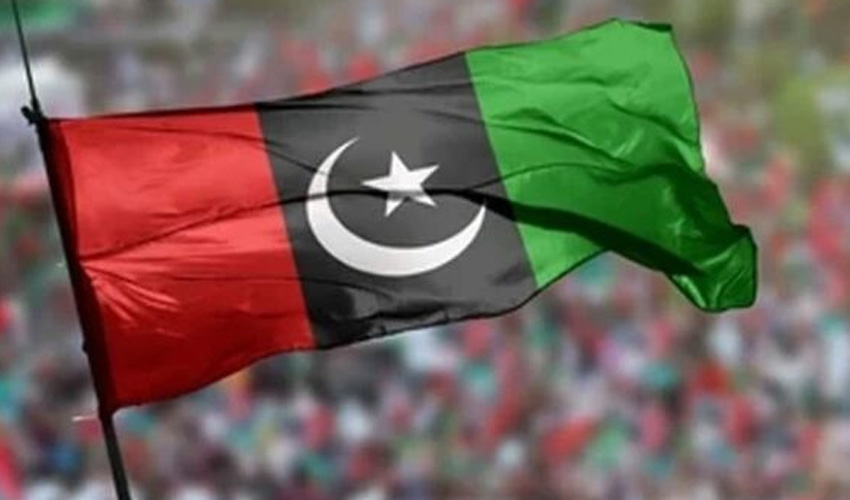Chief of Army Staff (COAS) General Asim Munir recently delivered an unapologetically nationalistic speech at the first-of-its-kind Overseas Pakistanis’ Convention in Islamabad. Addressing hundreds of Pakistani diaspora from around 60 countries, he sent a powerful array of messages to multiple audiences, including overseas Pakistanis, the public, enemies of the state, and internal critics.
The primary objective of his speech was not to charm the gathering or thank them for sending remittances, but to remind them – and everyone across the globe – who holds the line. Every statement he made oozed national pride, ideological reinforcement, military assertiveness, and emotional outreach. Some would see it as a reaffirmation. For others, his words served as a warning and a reality check, especially for those becoming too comfortable with the idea of a weak state.
Key Takeaways of Army Chief’s Speech
1-Brain Drain
Expressing deep gratitude and admiration for overseas Pakistanis, General Asim spoke about the emotional bond they have with the country. He effectively dismissed the notion of brain drain and framed expats as “brain gain” and ambassadors of Pakistan globally. His words “... if this is brain drain then we would like to continue with this brain drain for an indefinite period of time” were aimed at not just resonating with Pakistanis abroad but also mocking the defeatist narrative that paints migration as national loss rather than strategic spread.
2-Identity and Ideology
At the same time, General Asim urged expats to stay ideologically connected and preserve their identity as Pakistanis, besides passing on the country’s story to future generations. He laid a strong emphasis on Pakistan’s ideological foundation of Islam and the Two-Nation Theory to draw clear boundaries between “us” and “them”. By citing Allama Iqbal and invoking the concept of Riyasat-e-Tayyaba, he reminded the drifting and ideologically homeless section that there is still a center of gravity and a unique national character that cannot be compared with the West. His words remind Pakistanis abroad that despite living in foreign cultures, they belong to a "superior culture and ideology".
3-Terrorism and Unity
One of the most important segments of the army chief’s speech was the security landscape and the military’s central role in defining and defending the national narrative. He effectively dismissed concerns over terrorism undermining investment. Reaffirming the strength and resolve of the armed forces, he asserted that Pakistan's destiny could not be hijacked by a few militants or their handlers. The way he condemned the terrorist groups in Balochistan sent a clear message that anti-Pakistan elements had no chance against the will of the state and its people. In the same breath, he praised the sacrifices of soldiers and their families, and positioned them as proof of the Pakistani nation’s resilience.
Another interesting aspect of the speech was the much-needed definition of a 'hard state', which is often confused with hardness of attitude and strategy. The COAS explained it as a state in which every institution, department, organization, and division functions strictly according to the law and constitution.
He asserted that Pakistan has already "started rising", and the real question is how fast it will rise now. Calling for unity, resilience, and national pride across generations, he reinforced the idea that Pakistan is not just a country but a divine project.
4-Fifth Generation Warfare
General Asim also threw an indirect challenge at misinformation and the slow poisoning of public opinion. He called out the careless class that casually forwards propaganda and spreads lies, and then hides behind the phrase “forwarded as received”. Referring to the Quran’s warning against spreading unverified information, he slammed the culture of forwarding messages without fact-checking. He equated irresponsible social media behavior with misinformation and harm.
5-Kashmir and Palestine
Toward the conclusion of his speech, the army chief reiterated Pakistan’s uncompromising stance on Kashmir. He called it the country’s past, present, and future jugular vein, which Pakistan would never forget or abandon. He reminded the audience that Pakistan has already fought wars over it, and if another were imposed, it would hold on to the last man and the last round. He said the entire nation stands firm with the Kashmiri brethren in their just struggle against brutal Indian occupation. The message to the world was crystal clear that Kashmir remains a non-negotiable area of discussion.
General Asim adopted a tone of solidarity and pride while talking about Palestinians, saying that Pakistan had supported their cause in the strongest words. He conveyed to the world that Pakistan's alignment with the Palestinian cause is moral, religious, and historical. In both cases, he gave a clear message that Pakistan stands where it has always stood – with the oppressed and without fear of consequences.



























